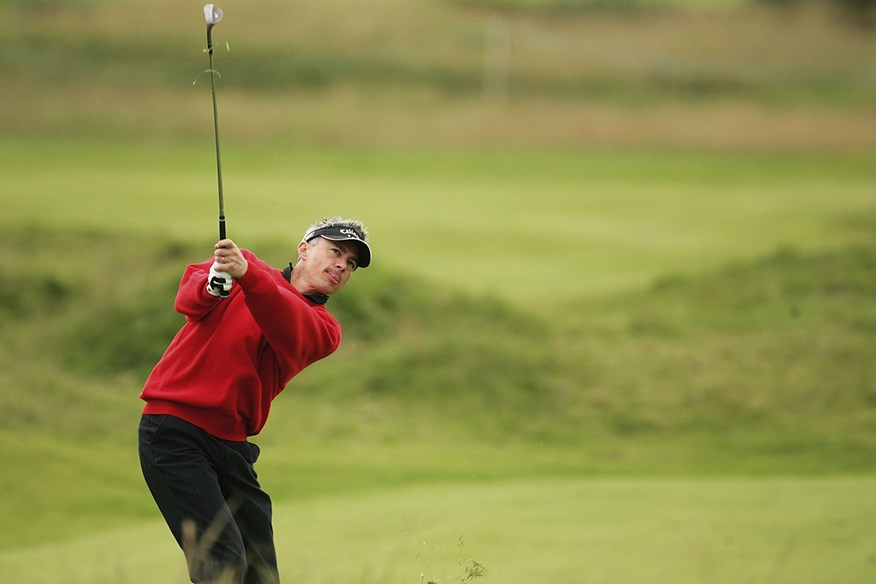Sandpits to bunkers: How an Olympic Champion became a scorer at The Open
Last updated:
I sat down at The Open with Olympic Gold medalist and triple jump world record holder Jonathan Edwards to find out about his transition into a different set of spikes and post-athletics passion for golf.
It’s almost 30 years since Jonathan Edwards hopped, stepped, and jumped over 60 feet to lay down one of track and field’s longest-standing world records. His mark of 18.29 m at the 1995 Gothenburg World Championships launched Edwards on a trajectory to Olympic Gold at the Sydney Games in 2000.
In a remarkable international career spanning 13 years, Edwards amassed 14 Major championship medals including two World Championship golds, and an Olympic silver medal to sit alongside his gold – the pinnacle of sporting success.
The triple jump is one of the most demanding events on the planet with elite-level jumpers required to tolerate up to 22 times their body weight as they land from the hop phase, battling to maintain horizontal velocity throughout the step and jump. Boasting top speeds in excess of 10.5 m/s, triple jumpers really can stake a claim as being one of sport’s ultimate athletes, and the name Jonathan Edwards is cemented right at the top of that pile.
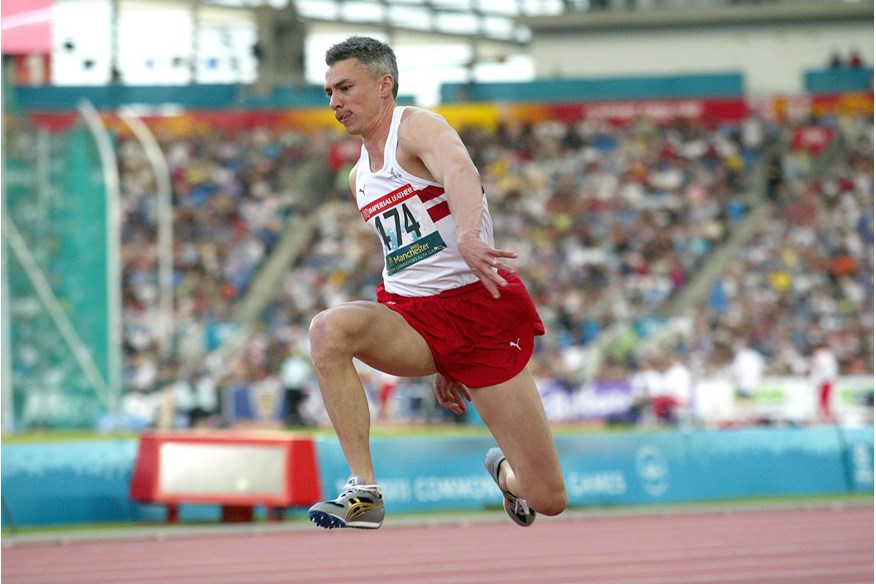
So when I heard a man who went by the same name was in the scorer’s office coordinating the transmission of 2,808 daily scores to our screens and iconic yellow Open leaderboards, I naturally asked, ‘Jonathan Edwards…as in Olympic Champion Jonathan Edwards?’
The very badger it emerged, and with that I jumped (sorry) at the chance to sit down with the multi-medalist and six-handicapper to find out more about his journey from sandpits to bunkers, and why golf should harness the endless potential of being part of the Olympic program in Paris. Here’s what he had to say in his own words…
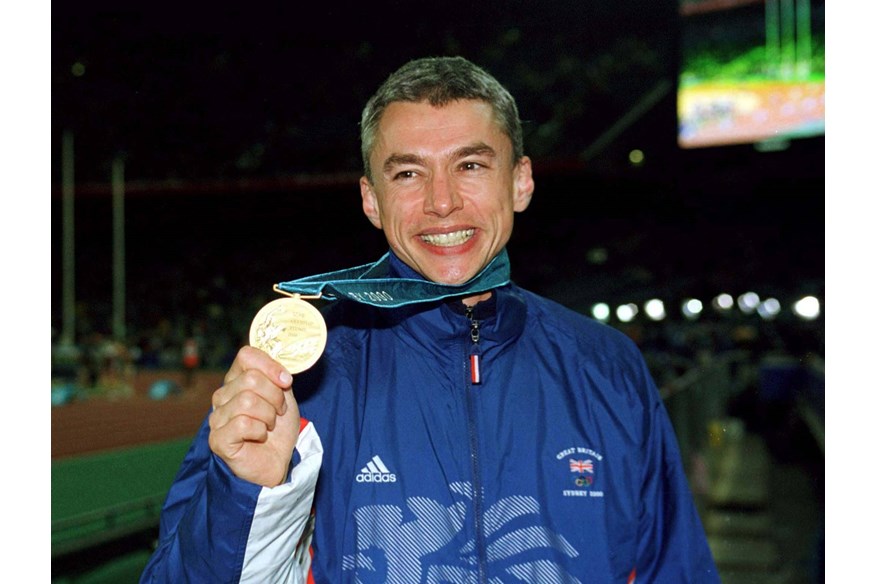
How did you get into golf?
There were two things I wanted to do after I retired – one was going on a family skiing holiday and the other was to play golf. So I joined a club, became an avid player, and played the Dunhill Links a few years after I retired. My first handicap was 13, then my son and I had consistent lessons throughout the winter and then I dropped down to six.
I just fell in love with it and now golf is my main thing. It’s my passion and something I didn’t know is that it’s actually good for my health. Everything the R&A has been doing around golf and health is music to my ears, so I can commit to golf without having to worry about doing lots of other healthy stuff.
Does your athletics background translate well to the course?
It’s interesting because golf has become much more athletic rather than purely skill-based, you look at all the longest drivers and the way the guys are hitting the ball now with the use of ground forces. The Titleist Performance Institute says that the biggest indicator of how far you hit the ball is actually your vertical jump performance.
My vertical jump was never particularly good and I don’t hit the ball massively far, but there is an athleticism there which should help the golf swing. But for me, the difficulty is that everything I did as a jumper was linear, and golf is rotational. I have good athletic ability, but I’m yet to completely translate it into the golf swing.
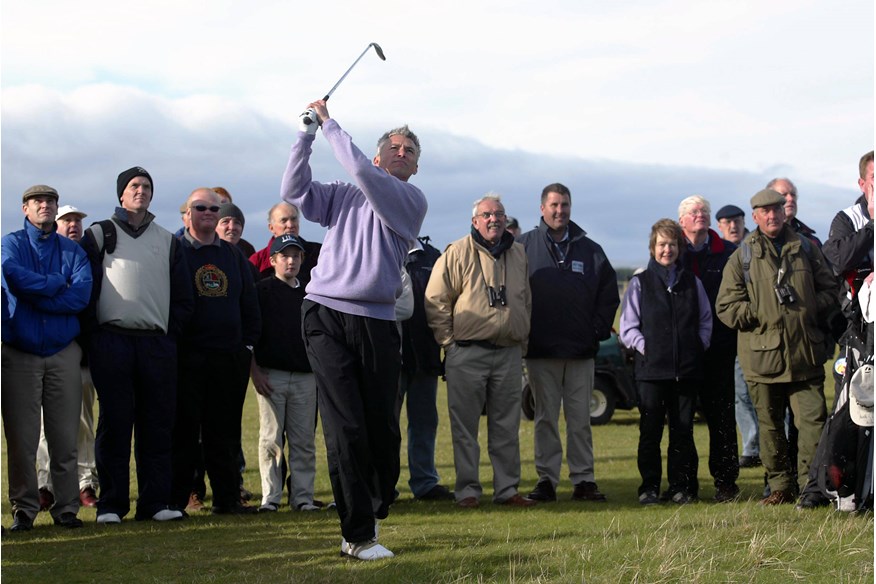
What are the strengths and weaknesses of your game?
My short game is my strength. I chip and putt well but I think my ball striking and approach to the green with my irons is the part that lets me down. If you want to improve your handicap, all the evidence suggests that the thing you need to improve is your ball striking and greens in regulation.
How did you find your way into Scoring Control at The Open?
This is my third Open now. I did the flags on the crossovers at 7 and 11 on the Old Course at St Andrews in 2022, and then I’ve done Score Control for the last two years which involves keeping an eye on the walking scorers, solving technical issues, and controlling the displays on the big manual scoreboards on the 18th grandstands.
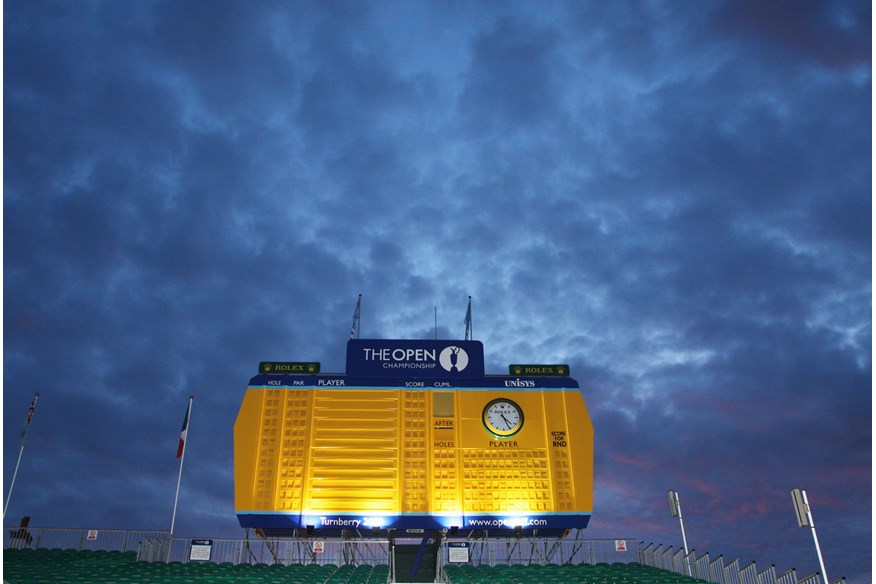
I feel part of the team now. We’re like a family and have already planned Portrush next year. There’s something special at the Open about having local clubs involved in pulling together the walking scorers as opposed to using professional companies as you see on tour, and the club captain will probably do the final group on Sunday. It’s one of the really nice things about The Open and of course, the manual scoreboards are an iconic part of the tournament. So to be here and have a role to play is fantastic and I’d much rather be doing that than just walking around watching it.
Do you have any favorite Open memories?
Seve winning at St Andrews in 1984 of course springs to mind, and I’m a big Jordan Spieth fan. I got the chance to walk with him for 18 holes last year. I loved it. The way he gets up and down and talks to himself, berating himself, geeing himself up…I really like that.
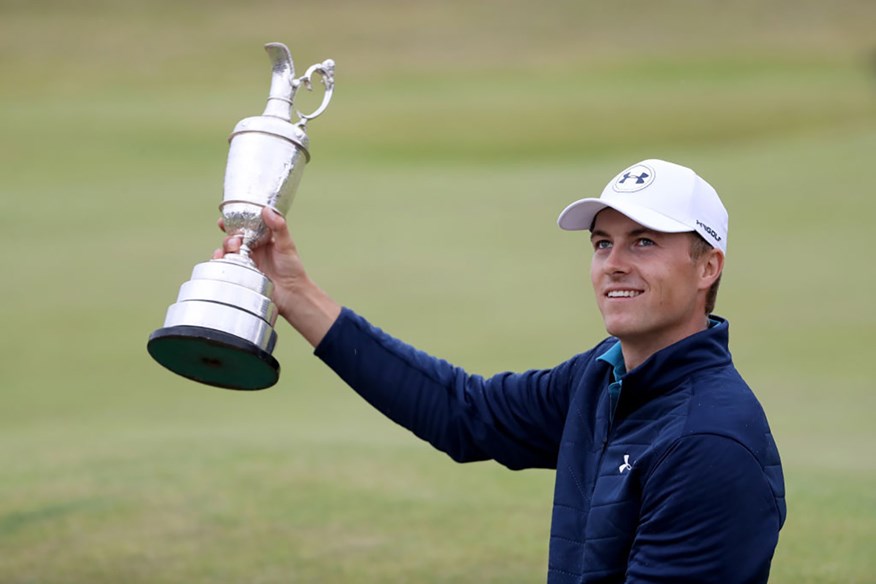
Do you look forward to watching the Olympic Games?
I must admit, I’m unlikely to watch the Games wall-to-wall, I’ll dip in and out of the athletics and obviously keep a keen eye on the triple jump. I just enjoy the spectacle of it and watching the whole thing come together, particularly after being involved on the organizing committee for London 2012. It’s a huge effort and so important to the host country.
Does being a world record holder ever grow old?
No. Not at all. I still have to pinch myself. It’s amazing.
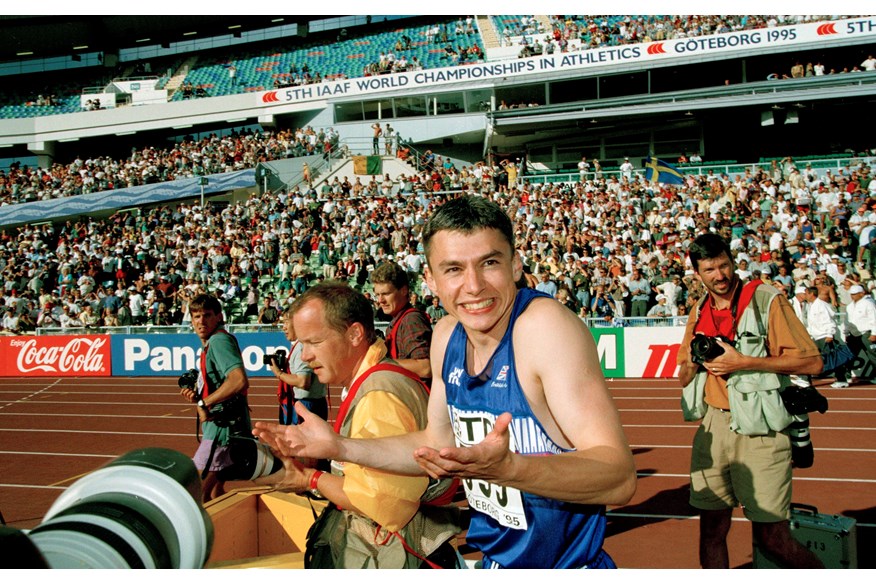
Is golf good for the Games and vice-versa?
Funnily enough, I’m a bit of a traditionalist. I think golf in the Olympics is great but it’s also not the most important golf competition. I understand why the Olympics want golf and actually, the Games give golf a fantastic platform with over 200 countries competing.
If you take me and my Olympic medals – that was the ultimate achievement. But for a golfer, they would prefer to win The Open, or at the Masters. But with my development hat on, it is really important for the sport as you’ll reach new countries you wouldn’t normally reach, so I get it. But golf at the Olympics doesn’t excite me as much as golf at Troon.
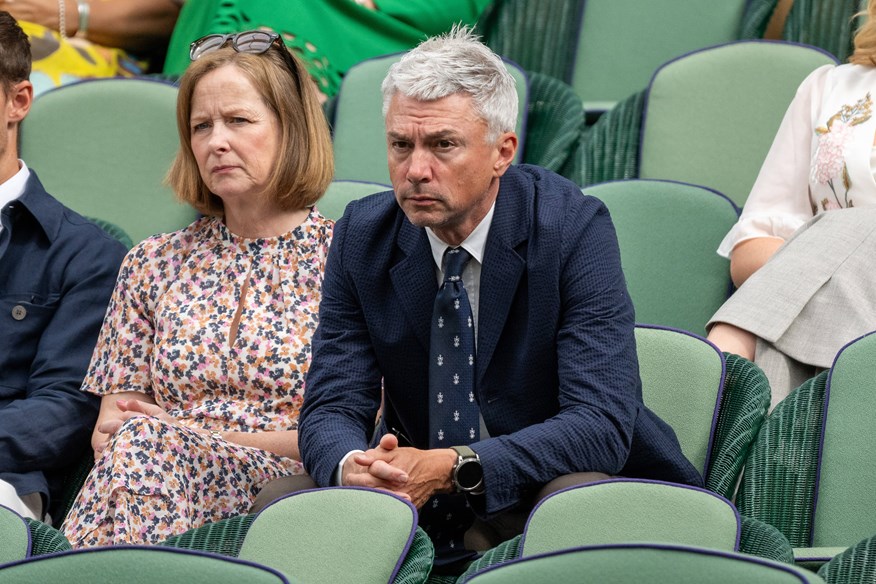
Would you prefer a see a change to the 72-hole strokeplay format?
I like the idea of a different format for Olympic golf because it distinguishes it from the Majors. Maybe a matchplay or knockout format. Also, golf should be played on a links course in my opinion, except for Augusta. I just love links golf.
Do stars from high-profile sports like golf and tennis boost morale within Olympic teams?
They were all ducking for cover in Rio, but unquestionably. I competed for the first time at the 1988 Games when tennis came into the program for the first time. Stefan Edberg was in the village, and Gabriela Sabatini also. They did add something for sure.
Could athletics benefit from a LIV-style shake-up?
There is always negativity surrounding LIV, but there is something in what they are doing that I think adds to the whole makeup of golf. Look at cricket’s IPL and how successful that is despite being so different from traditional cricket. It’s not for everybody. I mean, I don’t love the Ryder Cup. It’s too much and suddenly players become different from what we see for most of the season. I’m much more Walker Cup, walking the fairways, watching the amateurs play – I sound like an old man!
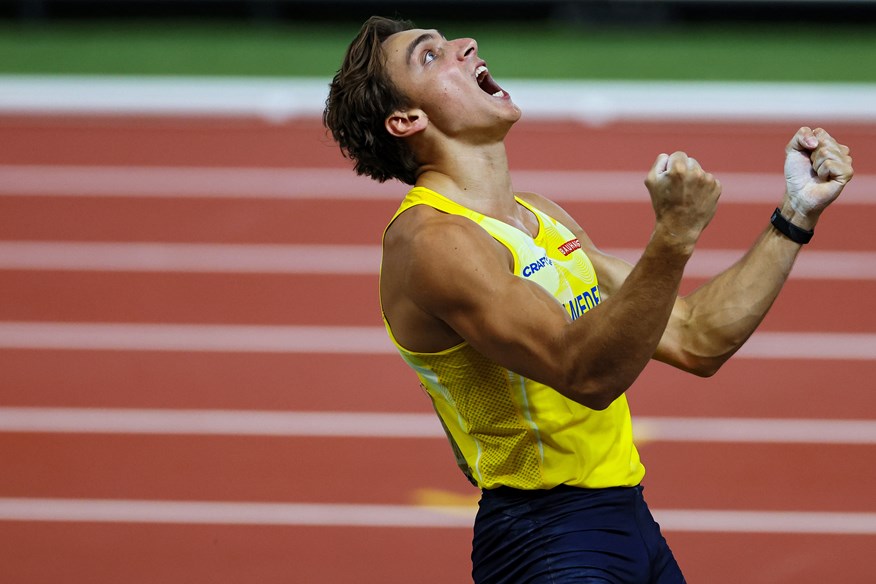
I think what track and field needs to do is make the most of its superstars. There is a bias among track athletes towards track, and even on television. But some of the biggest stars at the moment are field athletes. Armand Duplantis and Ryan Crouser are massive stars.
So I think you need to build a series around who your stars are as that’s what engages the public. I’m not sure people were in love with the triple jump when I was competing, but they did like watching me. Even the men’s 100 m now, most people won’t be able to tell you who the World Champion is now that Bolt is off the scene – it’s Noah Lyles by the way!
Jonathan Edwards is a Global Development Ambassador for The R&A.
-
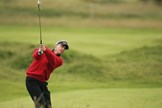 Olympic Champion Jonathan Edwards on his post-athletics passion for golf
Olympic Champion Jonathan Edwards on his post-athletics passion for golf
-
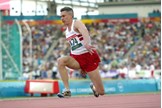 Jonathan Edwards competing at the Commonwealth Games in 2002
Jonathan Edwards competing at the Commonwealth Games in 2002
-
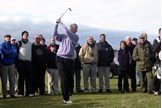 Jonathan Edwards competing at the Dunhill Links
Jonathan Edwards competing at the Dunhill Links
-
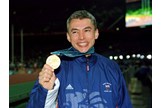 Jonathan Edwards with his Olympic Gold Medal from the Sydney 2000 Olympics
Jonathan Edwards with his Olympic Gold Medal from the Sydney 2000 Olympics
-
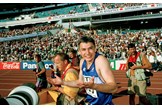 Jonathan Edwards after breaking the triple jump world record with a mark of 18.29m in 1995
Jonathan Edwards after breaking the triple jump world record with a mark of 18.29m in 1995
-
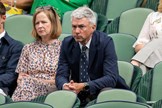 Jonathan Edwards in the Royal Box at Wimbledon
Jonathan Edwards in the Royal Box at Wimbledon
